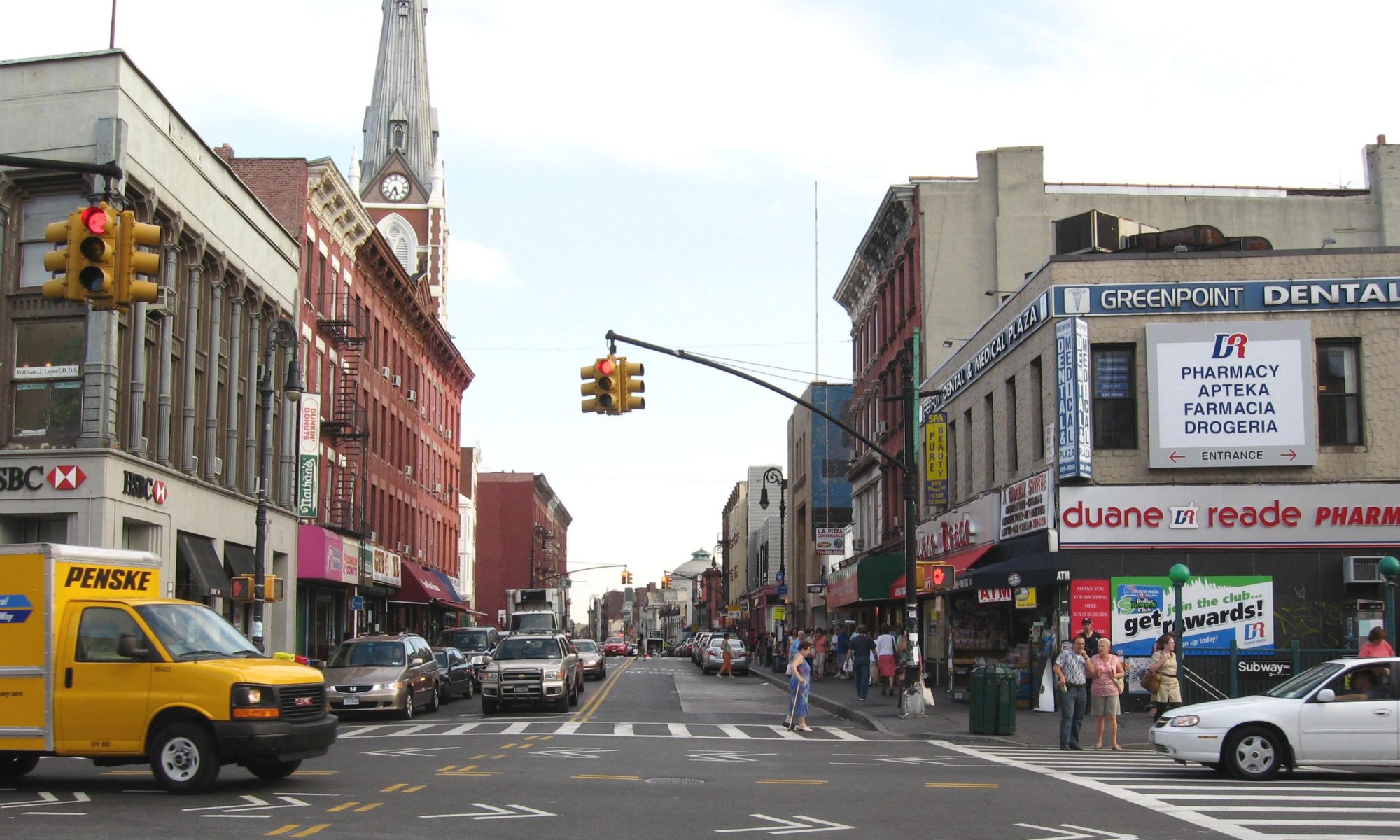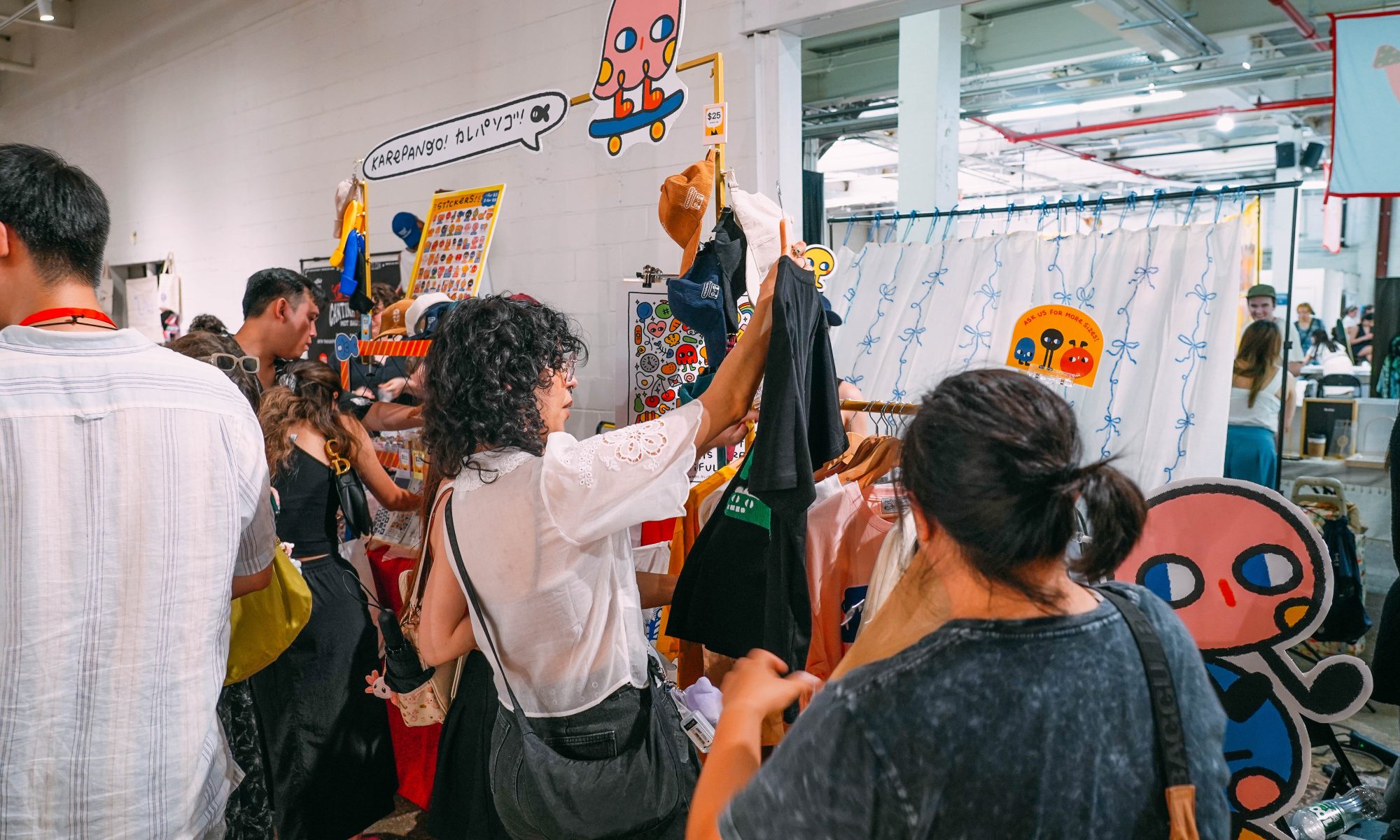By Jack Delaney | jdelaney@queensledger.com
One of the most influential craft markets in the country is returning to Brooklyn this weekend, drawing over 150 creators from the borough and beyond.
The Renegade Craft fair will be setting up shop in ZeroSpace, a venue that straddles Gowanus and downtown Brooklyn, for December 7 and 8. It will run from 11 a.m. to 5 p.m. on both days.
Renegade was founded in 2003 by Susie Daly, an aspiring therapist who began making jewelry after college and created the event’s initial edition in Chicago as a means to sell her work. The first time the market came to Brooklyn, in 2005, it took place in the drained-out pool at McCarren Park in Williamsburg, where customers descended the sloped sides to peer at handmade offerings.
Now in its twenty-first year, and dozens of installments later, Renegade has grown from its humble roots to become an institution — in 2008, Brooklyn Paper was already dubbing it the “preeminent D.I.Y. fair in the world.” And as of this year, casting a historian’s eye on the now-ubiquitous genre of small creators, SFGate described it as “arguably the mother of all contemporary craft fairs.”
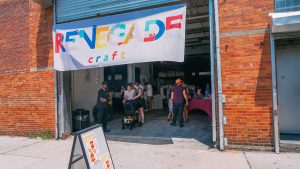
Today, Renegade throws events in Chicago, Seattle, San Francisco, and Los Angeles, along with summer and winter bonanzas in both Brooklyn and Manhattan. The company expanded to London and Portland, Oregon, but the former proved too logistical because of the distance and the latter simply didn’t catch on as fervently as it did elsewhere. Austin, Texas and Boston were cut due to the pandemic.
Part of what makes the fair such a draw no matter the locale is the careful vetting process for vendors. Renegade’s art director, Madelon Juliano, and her team combed over 600 applications for the upcoming winter fair at ZeroSpace. She said they juried based on quality alone, and had no hesitation including early-career artists alongside seasoned veterans, like long-time Etsy darling Wren Handmade.
The backgrounds of organizers like Daly — accomplished artists in their own rights, but ones who may have taken winding paths — speak to the grit of the participating vendors, many of whom seemed to have conjured a creative livelihood for themselves out of sheer force of will.
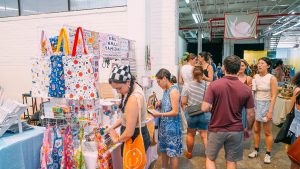
The Monday before the fair, Kelsie McNair spent the morning making stained-glass martini glasses. “[As Brooklynites,] we live in a place where there aren’t as many windows [being commissioned] as there might be in other parts of the country,” she explained, “because we’re mostly renting apartments.” So as an artist working with glass, she’s had to branch out: other items include languidly colorful forks, frames for mirrors, and even album art for the singer Jake Wesley Rogers.
McNair, originally from Virginia, started a vintage store out of college, at age 22. “I learned so much about small business, and about trying to be creative when you’re also trying to pay the bills. How do I find my joyful experience in the vast landscape of all the minutiae that the processing of owning a store brings?” After four years, she closed the shop and embarked on a range of other creative endeavors — photography, a job at a florist — before a friend recommended a glass residency program.
At first, it was “just something to do.” McNair had just wrapped her time as a shop owner, which she felt was “the best thing I was ever going to do,” and was feeling burnt out. But this residency, and the medium of glass, offered a way forward. “It sharpened my understanding of what kind of work I want to always have in my life,” she reflected.
McNair eventually landed a gig as a social media manager for Renegade, and began vending her own pieces in 2021.
The experience has been “wonderful” so far, she said. But she was sober about the acrobatics that creators must perform to remain marketable without compromising their personal style or message.
“We’re all in our own different challenging bubbles,” she said, “because we’re creating a path for ourselves that are uniquely ours. We are all looking for our own objects that work within the dialogue of the buyer or of the consumer or the customer, and we’re also constantly having to work to stay true to ourselves and to our brand.”
Similar themes resonated with illustrator Daili Shang, though her route to Renegade differed wildly from that of McNair.
Shang left China to study physics in a PhD program at UCLA, specializing in cancer treatment — much of her work centered on CAT scans and MRIs, she said. But she’d never thought of herself as a science person, and “didn’t really feel passion for it.”
When the pandemic struck, Shang found herself coding all day from home. It was miserable, yet it also offered a chance to reconsider her career. “I was just wondering about what I liked to do before [science],” she said, “what would bring me joy? And drawing is one of those things.”
The only issue? The last time Shang had picked up art supplies was in elementary school. Undeterred, she began to teach herself to draw — in her 30s, she wryly observed — by taking every online class she could find. Despite the difficulty of finding her own style, the pressure was manageable, because she had taken the leap and left physics for a new job, as a store manager for the high-end biking company Specialized.
Her first Renegade market was in Los Angeles in the spring of 2022, while still working at the bike shop. Initially, she focused on selling small stickers, which often incorporated the motifs of cats, bicycles, and self-help adjacent puns. But the margins were too slim when she decided to switch to art full-time, and she also began to have qualms about the stickers’ environmental footprint.
Serendipitously, Shang stumbled across linocut printing, her current medium of choice, though she is beginning to shift again towards acrylic painting. The cats are still there, but they’ve grown more whimsical, and the colors are bolder. And though cancer research, bikes, and illustration may seem impossibly disparate, Shang was adamant that the twists and turns were part of her work’s appeal.
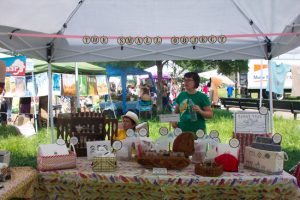
“What I want to offer the public is not just my art,” she said. “I want to offer them my story. Then they can also prioritize happiness and reflect on what they really want in life, and then live a happy life. Not everyone has to live a life they don’t want to be because they’re supposed to live a certain way.”
Juliano emphasized that the possibility of forming personal connections with the artists is one reason why Renegade has been so successful, enduring for over two decades.
In that vein, she was thoughtful about the unavoidable context for the fair, given its timing: Black Friday. On the one hand, she noted that many of the vendors were relying on the event to make their yearly budgets even out, and was candid about the imperative to sell items. On the other, she viewed the economy of independent creators that Renegade has fostered as an alternative to a more wasteful commercialism.
“Because of how long I’ve been working at Renegade, buying from small businesses has become a habit,” Juliano explained. “And I think something so cool about continuing to support things like Renegade and artists that participate in them is that once you keep doing it, you really can’t go back to buying stuff that you know is going right to the landfill, or you know isn’t going to last, or is so trendy that you feel like it’s not going to stick around your closet anymore.”
